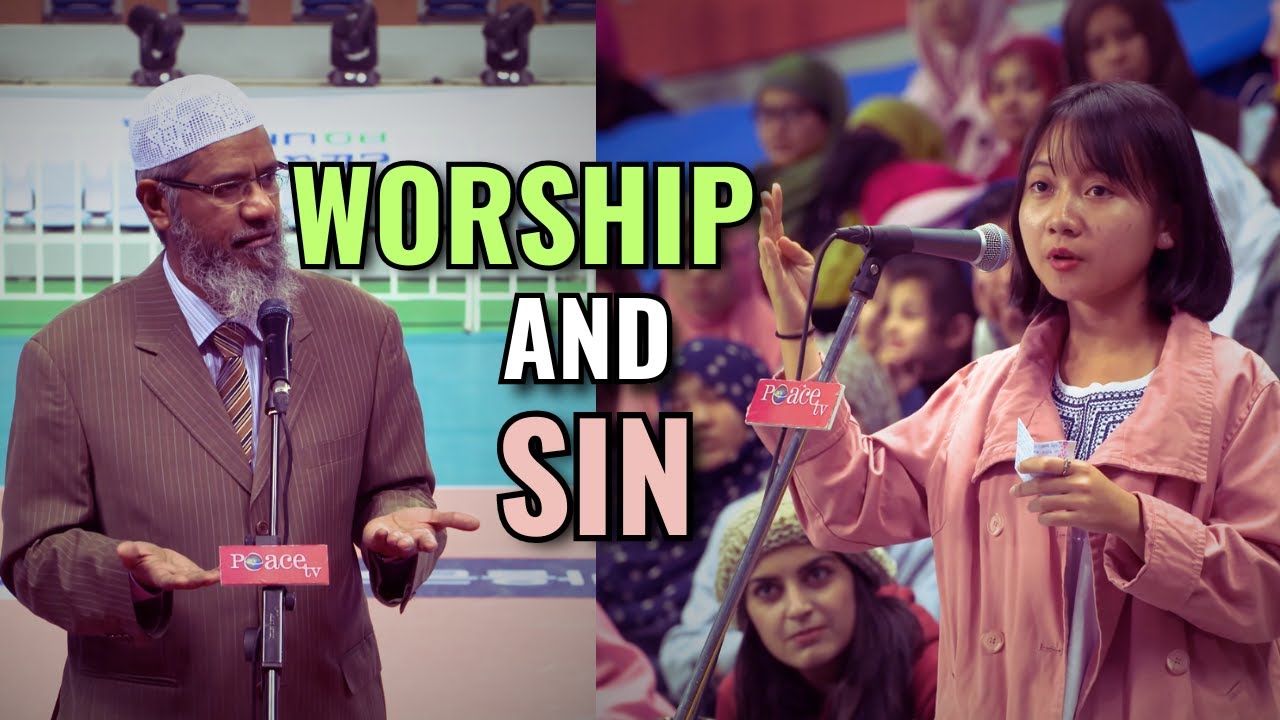Will disbelievers on qiyamah take some good deeds of a Muslim if he wronged them? assim al hakeem
Summary
TLDRThe speaker discusses the concept of good deeds and sins in Islam, explaining that non-Muslims cannot benefit from the good deeds of Muslims on the Day of Judgment. Allah will disregard any good deeds performed by disbelievers, rendering them ineffective. However, Muslims who wrong or transgress against non-Muslims will be held accountable for their actions and will be punished. The speaker emphasizes that sins committed against others, especially disbelievers, will be punished, while good deeds can only benefit those who follow Allah's commands.
Takeaways
- 😀 Non-Muslims cannot benefit from the good deeds of Muslims on the Day of Judgment.
- 😀 Allah will disregard the good deeds of disbelievers, making them of no benefit on Judgment Day.
- 😀 Even though a Muslim's good deeds cannot benefit a non-Muslim, sins against non-Muslims are still punished.
- 😀 If a Muslim wrongs a non-Muslim, the Muslim will be punished for their transgressions.
- 😀 Muslims will not gain rewards or good deeds from non-Muslims, as their actions will not transfer.
- 😀 Allah holds Muslims accountable for their treatment of non-Muslims, including any harm they cause.
- 😀 Sins committed by Muslims against non-Muslims are recorded and will be judged accordingly.
- 😀 On the Day of Judgment, a Muslim will not 'owe' or transfer good deeds to disbelievers.
- 😀 Non-Muslims' good deeds will be scattered and rendered void, offering no benefit in the afterlife.
- 😀 Muslims are rewarded or punished for their own deeds, and their actions toward others, including non-Muslims, will impact their fate.
- 😀 Ultimately, only the deeds of the believer, and not the disbeliever, will matter to Allah on the Day of Judgment.
Q & A
What is the key message about the good deeds of non-Muslims in the context of the Day of Judgment?
-According to the script, non-Muslims cannot benefit from any good deeds they may have done in this life, as their deeds will be scattered into thin air on the Day of Judgment. This is because their deeds are not accepted by Allah due to their disbelief.
How does the script explain the consequences for Muslims who wrong or transgress against non-Muslims?
-The script states that Muslims who commit wrongs against non-Muslims will be punished for their actions. These Muslims will not transfer their sins to the disbelievers, but they will be held accountable for their misdeeds and will face punishment accordingly.
Why do the good deeds of disbelievers not benefit them on the Day of Judgment?
-The good deeds of disbelievers are not accepted by Allah because they did not follow the path of Islam. Allah says these deeds will be rendered null and void, as they are not associated with faith in Him.
What is the role of sins in the context of Muslims transgressing against non-Muslims?
-The script clarifies that while a Muslim's good deeds cannot benefit a disbeliever, any sin committed by a Muslim against a non-Muslim will be punished. The Muslim will be held accountable for these sins, which will be added to their record on the Day of Judgment.
Does the script imply that non-Muslims will be punished for the wrongs done by Muslims against them?
-No, the script emphasizes that the punishment for wrongs committed by Muslims against non-Muslims will not be transferred to the non-Muslims. The Muslim who commits the wrong will be punished, not the disbeliever.
What is the significance of the Day of Judgment as discussed in the script?
-The Day of Judgment is presented as the moment when Allah will assess the deeds of all individuals, where the deeds of disbelievers will be ignored, and Muslims will be held accountable for any wrongs they have committed, especially those against non-Muslims.
How does the concept of 'benefit' in good deeds apply to non-Muslims, according to the script?
-The script argues that non-Muslims' good deeds are not beneficial to them in the afterlife because they do not align with the teachings of Islam, and thus, those deeds are disregarded by Allah on the Day of Judgment.
What happens to the bad deeds of Muslims who wrong non-Muslims?
-The bad deeds that Muslims commit against non-Muslims will be added to their own record of sins, and they will be punished for these actions. However, the non-Muslims will not bear any of these sins.
Does the script provide any hope or guidance for Muslims who have wronged non-Muslims?
-The script does not directly offer guidance or hope for Muslims who have wronged non-Muslims, but the overall message suggests that Muslims should avoid transgressing against others, as they will be held accountable for their actions.
Why is the concept of justice highlighted in this script?
-The script highlights Allah's justice by explaining that each individual is responsible for their own deeds. Muslims will be judged for their good and bad actions, and non-Muslims are not held accountable for the sins of others, demonstrating fairness and accountability.
Outlines

This section is available to paid users only. Please upgrade to access this part.
Upgrade NowMindmap

This section is available to paid users only. Please upgrade to access this part.
Upgrade NowKeywords

This section is available to paid users only. Please upgrade to access this part.
Upgrade NowHighlights

This section is available to paid users only. Please upgrade to access this part.
Upgrade NowTranscripts

This section is available to paid users only. Please upgrade to access this part.
Upgrade NowBrowse More Related Video

Kultum Amaliah Ramadhan bagi siswa/i SMAI Al-Azhar 4 oleh H. Hasan Marzuki

[Khutbah Jumat] Bangkrut Di Akhirat Karena Kedzaliman | Ustadz Wira Mandiri Bachrun

Events of the Day of Judgment || Part1 || Road to Jannah Series

Ceramah singkat ustadz abdul somad, 6 keutamaan istighfar

Praying SALAH, Yet SINNING – Is It Fair? | Korean Lady to Dr. Zakir

Kenapa Jadi Mualaf Tidak Ada Dosa? - Ustadz Adi Hidayat
5.0 / 5 (0 votes)